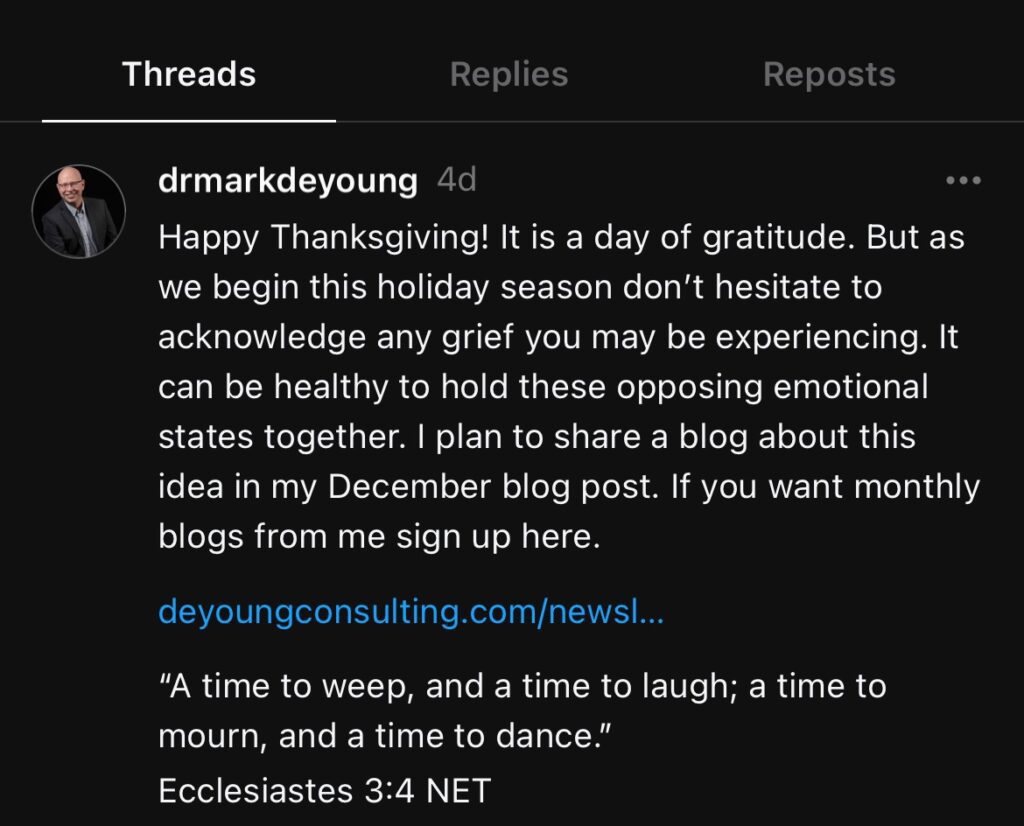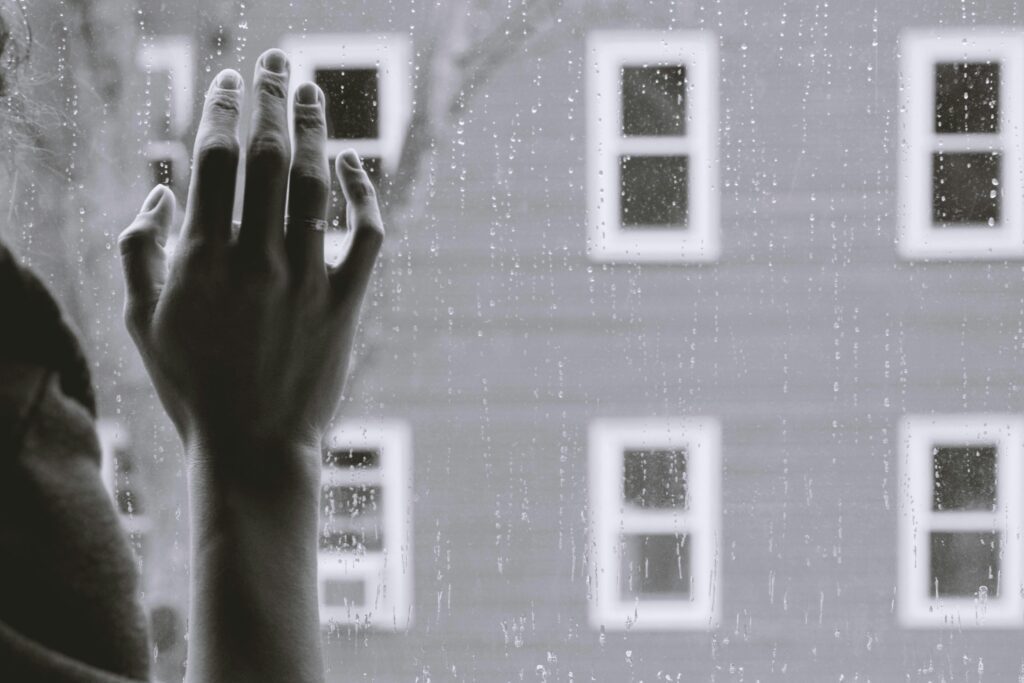I recently mentioned in a Threads post that the holidays can be a time of joy, gratitude, and celebration, but they can also remind us of grief or other challenging emotions. It can be beneficial to hold opposing emotional states together. It is an uncomfortable but healthy tension. I want to explore how this might be beneficial.

We live in a culture addicted to the positive. We seem to want a constant dopamine rush of effervescent joy. Our problem is that we are not neurologically wired up to live that way 24/7. So, we constantly battle uncomfortable emotions that can flood our daily reality. We seek escape through doomscrolling, substances, or any number of potentially harmless to harmful distractions from pain.
A recent Wall Street Journal article challenged the current cultural obsession with gratitude. So many products on the market promote forming habits and attitudes of gratitude. But the article suggests there is a “dark side.”
“Performative gratitude—compelling ourselves to be grateful when we’re not—is a form of toxic positivity. The energy we expend trying to avoid the uncomfortable feeling will, ironically, keep us focused on the problem…It can also make us appear like a Pollyanna—someone out of touch with reality.”

Ultimately, focusing on the positive causes us to ignore the problem. Ignoring the problem can lead to many bad outcomes, like more pain. We need to make a habit of acknowledging our hurts, losses, and injustices to seek realistic and healthy responses. (If you want a blog on how to do this in marriage, try this link)
Brene Brown speaks to this idea, explaining how unhealthy it is to numb painful emotions. If you numb your pain, you paradoxically numb your joy.
“We cannot selectively numb emotions. When we numb the painful emotions, we also numb the positive emotions.” –The Gifts of Imperfection
How Acknowledging Uncomfortable Emotion is Beneficial
So, how can it be healthy to acknowledge the negative emotions in your life? Let me suggest two possible benefits.
- It is for protection.
I want to work on developing this idea a bit more in a future blog. But for now, I want to offer a quick example. Anger is a classic negative emotion. It comes in many forms, such as irritation, frustration, annoyance, and even rage. Anger protects you because, at its very core, it has identified some type of injustice.
Maybe you have a family member who keeps taking advantage of your parents financially. You have discovered that over the past six months, this family member has manipulated and convinced your parents to gift them over $10,000, and you are incensed. It is wrong for someone to take advantage of retirees living on a limited fixed income. Your anger can become a fuel (properly directed) to help work with your parents to set limits and financial controls so they can remain financially secure.
- It increases your empathy quotient.
The “individualism” and focus on “I” in our American culture create a significant deficit. Pain is communal because it is never dealt with in isolation. We don’t suffer alone and in private. Sure, we might want to be alone in our pain, but our pain removes us from others. The community suffers.
To name and voice our pain and discomfort increases our empathy for ourselves and others. Sharing our pain allows others to connect in empathic ways with their experiences. The community gets an opportunity to lament together. Empathy is then shared by two or more. The voicing of negative emotions is reciprocal and relational.
“The greatness of a community is most accurately measured by the compassionate actions of its members.” — Coretta Scott King
To live and function in a community that shares, sees, and has compassion for the pain of all its members is a system of rich empathy.
Conclusion
Avoiding uncomfortable emotions can be a problem. But holding our negative and positive emotions in both hands can be helpful. For sure, celebrate and be grateful for the good in your life. But don’t hesitate to hold the hurt in life in an uncomfortable but healthy tension. This increases your awareness of where you might need protection and boundaries. It will also grow your empathy and the relational empathy of your surrounding community.
Leave a Reply